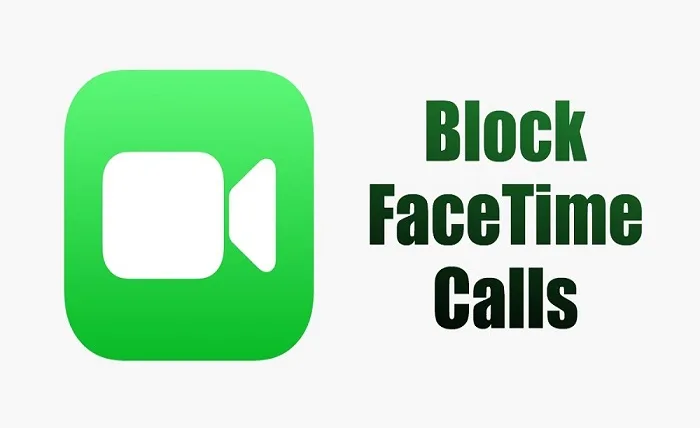FaceTime is one of the most popular video calling apps, allowing Apple users to connect face-to-face over Wi-Fi or cellular data. However, sometimes communication breaks down and people resort to blocking others on FaceTime. This raises the common question – can I FaceTime someone who blocked me? If you’re keen to delve deeper into FaceTime’s features and capabilities, check out the innobytech.com blog for extensive hands-on details. Expert guidance from seasoned specialists can elevate your user experience.
Understanding What It Means To Be Blocked on FaceTime
Blocking on FaceTime prevents the blocked contact from being able to FaceTime or call the person who initiated the block. When someone blocks you on FaceTime, your calls to them do not go through and you may find yourself instantly sent to voicemail or have your calls go unanswered without even ringing on the recipient’s end.
Blocking on FaceTime is linked to blocking the contact on your iPhone address book. So if you are blocked on FaceTime, you are automatically blocked for regular iPhone calls as well. The implications are isolated to phone communication, so you may still be able to exchange iMessages or text messages with a blocked contact.
The Answer: You Cannot FaceTime a Blocked Contact
In short, no, you cannot FaceTime someone who has blocked you. Apple designed FaceTime blocking to be effective and has safeguards in place to prevent blocked callers from getting through. Your FaceTime calls will not connect and you will get no indications that they are even ringing or being received on the other end.
Attempting to FaceTime a blocked contact results in instant redirection to voicemail or display notifications that the call was declined or could not be completed. The block prevents your FaceTime call requests from reaching the other person’s device entirely.
Troubleshooting Signs You May Be Blocked
There are a few signs that indicate your FaceTime calls are not going through due to being blocked:
-
Calls instantly go to voicemail without ringing
-
No notifications or indications the FaceTime call is going through
-
The call fails or you receive on-screen messages that the call could not be completed
-
The contact always seems “unavailable” on FaceTime
If you are experiencing any of these issues consistently, it’s very likely that you have been blocked and that is why your FaceTime call attempts are ineffective. You can learn a little more about the number of rings in FaceTime if you are blocked in a special guide. This will allow you to save time and not waste it trying to contact the contact who blocked you.
How Blocking Works Technically on Apple Devices
Behind the scenes, Apple has measures in place to enforce FaceTime blocks:
-
FaceTime blocking is synced across devices using the same Apple ID, preventing blocked calls from that contact reaching any of your linked devices.
-
Even if you try calling from an unknown number or disguising your caller ID, Apple’s systems recognize you as a blocked contact on the receiving end.
-
Calls from blocked contacts are intercepted at the network level before they can reach the recipient’s device.
This understanding of how blocking is implemented on Apple’s backend illustrates why FaceTime calls from blocked contacts simply will not go through no matter the circumstances.
Blocking Impacts All Apple Communication Channels

It’s important to understand that being blocked on FaceTime has implications beyond just video chat:
- Blocking on FaceTime = Blocking on iPhone Calls: The block prevents all phone calls to the recipient, not just FaceTime.
- iMessage May Still Work: While you cannot call or FaceTime someone who blocked you, you may still be able to exchange iMessages, text messages, and SMS with them.
- Shared Albums & Photo Streams Unaffected: Blocking does not prevent you from accessing shared albums or photos through iCloud. Media sharing works independently from device blocking.
- Block Syncs Across Apple Devices: Blocks are implemented across all devices signed into the same Apple ID, preventing calls from you on any device.
Common Myths and Misconceptions
There are a few common myths surrounding the ability to FaceTime blocked contacts:
Myth: You Can Bypass Blocks by Using a Different Number
This is false. As mentioned, Apple’s systems recognize you as the blocked contact, not just the specific number, so calls from other numbers also do not go through.
Myth: Not Seeing “Delivered” on iMessage Means You’re Blocked
While this can be an indicator, there are other reasons you may not see “Delivered” that aren’t blocking, like the recipient having iMessage disabled or turned off. Relying on this alone is not foolproof.
Myth: Blocks Expire After Some Time
FaceTime blocks do not expire. Blocking is permanent until the user decides to manually unblock that contact.
Respecting Boundaries if You Are Blocked
If you discover you are blocked, it’s important to respect that decision and the recipient’s boundaries. Do not bombard them with contact attempts through other channels. Give them space and, if appropriate, try to open up an earnest conversation about the situation to understand why and resolve any misunderstandings.
How to Unblock a Contact on FaceTime
If blocking was accidental or temporary, here is how to unblock a contact:
-
Open Contacts app and select the blocked contact.
-
Tap “Edit” in the upper right corner.
-
Scroll down and tap “Unblock this Caller” to remove the block.
-
Confirm by tapping “Unblock Contact” when prompted.
The unblocked contact will not receive any notifications or indications they had been blocked in the first place. Things will resume normally as if they had never been blocked.
Frequently Asked Questions
Can I Be Blocked on Just FaceTime and Not iMessage?
No, blocking applies to both FaceTime and phone calls collectively. However, you can remain unblocked on iMessage and SMS while blocked on calling.
How Do I Know If I’m Blocked on Just FaceTime or iMessage Too?
Try sending an iMessage. If delivered, you are only blocked on FaceTime and calls. If not delivered, you’re fully blocked on all communication channels.
Are FaceTime Blocks Permanent?
Yes, FaceTime blocks remain in effect indefinitely until the blocking person manually unblocks the contact.
What Other Video Chat Apps Can I Use If Blocked on FaceTime?
Popular alternatives include Skype, Google Duo, Facebook Messenger Video Calling, WhatsApp video calling, and more.
Conclusion
In summary, it is not possible to FaceTime someone who has blocked you on iPhone. Respect digital boundaries and, if appropriate, seek open communication to understand the rationale behind being blocked. With some empathy and mutual understanding, the situation may eventually lead to resolution and unblocking.



